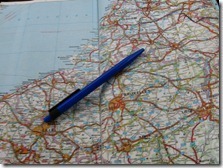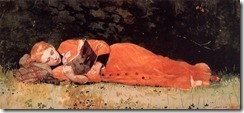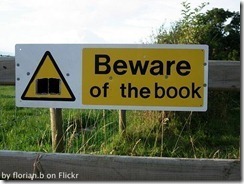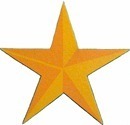Elizabeth Spann Craig's Blog, page 192
October 3, 2011
Moving Quickly Through a Draft
 I'd love to have the luxury of thoughtfully mulling over each word and getting wrapped up in the art of my writing—I just don't have the time.
I'd love to have the luxury of thoughtfully mulling over each word and getting wrapped up in the art of my writing—I just don't have the time.
Between publisher deadlines, working for more than one imprint and editor, and trying to do my own independent projects, writing quickly has become mandatory for me.
If you're in the same boat, or if you're thinking of participating in NaNoWriMo next month, I thought I'd share what works for me. (Your mileage may vary.) :)
Tips for speeding through a first draft:
Have at least an idea where you're heading with a story.
Write sequels and series—you'll have an already-established setting and a core group of characters to write several books around.
Don't worry about chapter breaks during a first draft. Or even a second draft.
Don't stop to research or find the perfect word choice. Type in **** and come back to it later.
Learn to write anywhere and with any noise level . The ability to adapt to any environment makes the writing go faster.
Don't obsess over the perfect character name. The name can easily be changed later after we've gotten to know the character better.
When you realize you're not happy with the direction your story is taking, flag the point where you're changing the plot line and just pick up with the new direction at that point.
Put random ideas and out of place scenes in a special Word file.
If you get stuck at some point in your book, consider writing a different part of the book until you're ready to tackle the part that stumped you.
Make a short list of what you want to accomplish with your writing for the next day and where you plan on picking up with your story.
What works for you? Do you experiment with your process? And…are you participating in NaNoWriMo?
October 2, 2011
Changing Our Book's Game Plan
 I've worked with several different editors for the series I've written/am writing.
I've worked with several different editors for the series I've written/am writing.
Each editor has been very different. I've actually really appreciated the differences because I'm getting a different perspective each time I go through an edit.
My editor for the new series has kept me on my toes. I'm not good on the phone (actually, I hate phones), so I usually try not to talk on one. I'm also someone who makes books up as I go along…I don't outline.
This editor likes to talk on the phone and review outlines. :)
The process has probably been good for me. Although it's been challenging.
Our last conversation, though, showed my discomfort with both phones and outlines, all at once. My editor said, "Yes, the story you're planning sounds really good. But I was wondering if you could change the killer?"
Now, if I'd been emailing, I would have written something really polished back. I'd have said I was delighted to change the killer and here were three alternates. Did she have a preference?
Since I was on the phone, though, I said, "Uhhhhh…."
It wasn't that I was upset about making a change. Actually, I frequently change the killer while I'm writing my book…or even after I've written it. Easy enough, because all the suspects have motive, means, and opportunity. It doesn't really matter to me which one does it because I've set up up so any of them could have murdered the victim.
But the difference was that I hadn't written this book out yet…it was an outline. And I was on the phone. And I hadn't thought it through.
Once I'd recovered and told her I'd be happy to make the change and would email her the possibilities, I took a look at the outline. She'd blown my mind enough that I couldn't even remember who the other suspects were.
I found, though, that if I changed the killer, it actually was going to make the mystery a lot more interesting. As I started exploring the possibilities, more ideas came to me. Some of the ideas weren't going to work, but others were more interesting.
It really changed the entire book, since it was an outline. If I were just doing a revision of a finished book, it wouldn't have probably changed it that much…because I'd just have tweaked it in a few places and rewritten the last couple of chapters.
I'm still no fan of outlines (even though this particular instance worked out well), but it made me think about the other project that I'm starting right now..the one that I'm not outlining. I always have a big-picture idea of a book when I'm starting out, a general direction I'm heading in. In fact, I usually write the back cover copy for a book before I start writing the manuscript.
Maybe I could write several completely different big-picture ideas for the new book. Wildly different from each other. And see which one I like best.
Do you come up with different outcomes of a book when you're brainstorming? Or do you latch onto the first feasible idea you have (which is, ordinarily, what I do…although I frequently revise it later)?
October 1, 2011
Twitterific
Below are the writing-related links I tweeted last week.
The Writer's Knowledge Base search engine, designed by software engineer and writer Mike Fleming, makes all these links searchable. Sign up for the free monthly WKB newsletter for the web's best links and interviews: http://bit.ly/gx7hg1 .
Recent news: Progressive Dinner Deadly is a Myrtle Clover mystery, available for $2.99 on Kindle and Nook. The 3rd book in the Memphis Barbeque series will release November 1—Hickory Smoked Barbeque (available now for preorder).
Hope everyone has a great week! Good luck with your writing.
10 Tips Writers can Learn from Bad Movies: http://bit.ly/oYOxmd @LyndaRYoung
What makes a novel a page-turner? http://bit.ly/ql7atc @jamesscottbell
Weeding or editing: http://bit.ly/qvSF3L @nicolamorgan
Is your YA setting hitting the wrong nerve? http://bit.ly/oFWCvl @YAConfidential
Real Life Diagnostics: Dreaming of a Good Start: http://bit.ly/q51SDj
Creating Cover Art: Down & Dirty Tips: http://bit.ly/pnYzC1
How do you get fans without 1st having word-of-mouth? 1 at a time: http://bit.ly/qrpJM2
How to Self-Publish an Ebook with Smashwords: 32 Authors Share Their Tips and Tricks: http://bit.ly/p3jk5h
5 Steps to Adding Social Follow Buttons to Your Website: http://bit.ly/pYmBWp @bookmarketer
Book Cover Design Tips: http://bit.ly/nHBqEu @thecreativepenn
The Philosophy of Writing and Reading: http://bit.ly/qIYnQi @FantasyFaction
What Elements Make a "Good Book"? http://bit.ly/p6iYpx @KMWeiland
Self-publishing news & views on @jfbookman 's Carnival of the Indies: http://bit.ly/nviJMo
Fictional sleuths who disarm their suspects with charm: http://bit.ly/ptbdag @mkinberg
Handling both good and bad reviews: http://bit.ly/qZK8Kc
The danger of inspirational fiction: http://bit.ly/p2AFq9 @NovelRocket
Should Your Story Be Told by an Unreliable Narrator? http://bit.ly/pR8tz7 @LTWFblog
Thoughts on writing for kids: http://bit.ly/qf11f0 @spacejock
A writer's partnership with editors & the importance of revisions: http://bit.ly/o4MZcG
The similarities between self-publishing and blogging: http://bit.ly/mYpLWl @jfbookman
Why You Should Only Query 6-8 Agents at a Time: http://bit.ly/nM9Ssh
Where to Find Free Market Listings for Writers: http://bit.ly/olLWqX @JaneFriedman
Resources for writing SF/F: http://bit.ly/qM8fns
15 Terms for Forms and Types of Governance: http://bit.ly/pssYRv
A Good Editor – Don't Leave Home Without One: http://bit.ly/nNgOeH
Plot is linear, story doesn't have to be: http://bit.ly/rnZviq @dirtywhitecandy
Why are our heroes getting darker? http://bit.ly/oQExrV @FantasyFaction
A Checklist for Marketing Your Ebook: http://bit.ly/pXcoGb @JaneFriedman
Tips for writing action: http://bit.ly/qmjSv9 @jhansenwrites
Agents Who Want to Be Publishers: Get Author Consent in Writing: http://bit.ly/otia2n @PassiveVoiceBlg
Straddling Genres: http://bit.ly/n4Nvd4 @jemifraser
25 insights on becoming a better writer: http://bit.ly/ngWXRq @the99percent
Review: Kobo eReader Touch: http://bit.ly/qL6mzv #ebook
5 Android Apps For Writing: http://bit.ly/qs7z8c @ebooknewser
Write Yourself into Your Characters: http://bit.ly/qtpt4H @fuelyourwriting
10 Websites and Blogs of Punctuation Protectors: http://bit.ly/pUu1Ud
How to speak publisher - D is for day job: http://bit.ly/qWLH0t
Thoughts on putting an anthology together: http://bit.ly/pOGYFG
Bust-A-Myth #1: Don't Start Sentences With Because: http://bit.ly/p4X8Wv @Grammar_Diva
11 Habits of Highly Effective Interviewers: http://bit.ly/qZ1NHS @write_practice
Change of Seasons--Visioning Time for Your Book? http://bit.ly/nR2Ado
5 Ways to Keep Your Writing Engine Running: http://bit.ly/q717mh @writeitsideways
The Fear of Not Succeeding:http://bit.ly/pUpFzN @PBRWriter
Add layers to your first chapter: http://bit.ly/qqhNC8 @laurapauling
On daydreaming and word counts: http://bit.ly/nTtwMw
The Emotional Roller Coaster Ride of a Book Release: http://bit.ly/oFVk9J @jodyhedlund
7 steps for better blog design: http://bit.ly/owdx5O @jeffgoins
Become the Hero of Your Writing Life: http://bit.ly/phBHwd @katie_tallo
Artfully Editing Your Personal Essays: http://bit.ly/pcQ1S0
How The Amazon Tablet Will 1-Click Enable Your Life: http://bit.ly/oT11rf @PassiveVoiceBlg
Does writing affect one's love of reading? http://bit.ly/opSTIv
The benefits of humor in suspense: http://bit.ly/rePTj4 @joanswan
BannedBooksWeek-- A look at Huckleberry Finn: bit.ly/q2KT37 @p2p_editor
#BannedBooksWeek--A look at "Catcher in the Rye": bit.ly/q2KT37 @p2p_editor
#BannedBooksWeek--A look at "Fahrenheit 451": http://bit.ly/nDjkMO @p2p_editor
How *not* to introduce a new character: http://bit.ly/pJvqWV @write_practice
Trouble at Aspen Mountain Press: http://bit.ly/oohxgf @VictoriaStrauss
Poetic Forms: Rispetto: http://bit.ly/nSkuBI
How To Check Out Kindle Library On The iPad: http://bit.ly/qhGbvo @ebooknewser
A writer's minimum viable product: http://bit.ly/nUDS7U @jfbookman
A look at what makes a story a story: http://bit.ly/pt3vs4 @JaneFriedman
3 Places To Get Off Your Grammar High Horse: http://bit.ly/mZeWBk @Grammar_Diva
4 skills fantasy writers need: http://bit.ly/pWWYHf
1st round edits--the editorial letter: http://bit.ly/qER3t9
Tips for beta readers: http://bit.ly/r1HiO3 @Sarafurlong
5 Essential Tips For Creating A Children's Book: http://bit.ly/qn0hqO @thecreativepenn
10 ways to increase story tension: http://bit.ly/qwmHSh @CherylRWrites
Differentiating between characters: http://bit.ly/oQ99g8
"Playwrights...stand in the back of the theatre & watch the audience, not the play." @LaurHarrington http://ow.ly/6GmbZ RT@Porter_Anderson
#BannedBooksWeek: A look at "Lolita": bit.ly/nvsljW @p2p_editor
10 Reasons It's Great to Be a Writer: http://bit.ly/rnCyLW @elspethwrites
Tips for finding a good pen name: http://bit.ly/o2642k @WriteAngleBlog
10 questions to ask your characters : http://bit.ly/paYEyE @jammer0501
10 tips for planning a blog tour: http://bit.ly/nzXXS1 @BryanThomasS
Tips for staying inspired to finish your book: http://bit.ly/nFj4Qs @NovelRocket
Conference flubs aren't fatal: http://bit.ly/ogNuKM
Why Seth Godin says we are all weird now + what this means for your blog: http://bit.ly/rs0PFx @justinemusk
The Parable of the Little Book of Stories: http://bit.ly/p3mBMR @jfbookman
5 Words and Their Nonantonymic Antonyms: http://bit.ly/qY3VK7
Are you writing the right medium? http://bit.ly/oUvLuS @jammer0501
6 tips for author readings: http://bit.ly/n6SyXP @RLLaFevers
Stiff competition makes self-editing essential: http://bit.ly/oI7z8j @bubblecow
Reading our old books is like an echo from the past: http://bit.ly/omAevM @barbaraoneal
Bad v. badly: http://bit.ly/r5jp3L
Writers--learn & manage the business side of : http://bit.ly/oxug17 @DeanWesleySmith
Enough with the 'Facebook is Free' Already: http://bit.ly/nbGMrF @catseyewriter
How many sample chapters should we sent agents or editors? http://bit.ly/qb8f2I @WritersDigest
10 Things You Can Do Now to Promote the Book You Haven't Even Sold Yet: http://bit.ly/pPWXdU @NovelRocket
Shortcut to scene: http://bit.ly/qdrtBe @Mommy_Authors
7 Ways to Perfect Your Writing "Tone": http://bit.ly/nAWsLC @WritersDigest
Tips for staying on task: http://bit.ly/qbG61x
Why nouns matter--objects and labels: http://bit.ly/n0wzCo @JulietteWade
5 Facebook Changes and What You Need to Know: http://bit.ly/ntzZST
The "Than" Versus "Then" Debacle: http://bit.ly/n3WqCW @write_practice
A few queries that didn't work: http://bit.ly/r4liL7
The Future Of Books: A Dystopian Timeline: http://tcrn.ch/oICGte #publishing
7 Tips to Improve Your Novel's Pacing: http://bit.ly/rdMr7m @janice_hardy
Do you have to write high-concept to have a successful novel? http://bit.ly/qApRrv @LauraPauling
Pre-Writing Preparation--or Not: http://bit.ly/q3ViaA @elspethwrites
How To Find Free eBooks for Your iPhone: http://bit.ly/q0rPFK @galleycat
4 years into the ebook revolution: things we know and things we don't know: http://bit.ly/ngFoq9 @PassiveVoiceBlg
Facebook attempts to be more like Twitter & Google+: http://bit.ly/nZkGuk @KristenLambTX
Catch up w/ industry news & views with this thoughtful digest by @Porter_Anderson for @JaneFriedman: http://bit.ly/oLZIZE
Words to consider cutting if your word count is too high: http://bit.ly/rbRRfe
When Writers Don't Agree With the Publisher/Publicist's Message: http://bit.ly/qffswR @BlurbIsAVerb
Konrath looks at his ebook predictions from 2009 & makes some new ones: http://bit.ly/oZplBc
Can You Really Force a Character To Do What You Want? http://bit.ly/mXf5c0 @lisagailgreen
Yes, you do have time to write: http://bit.ly/pJ6TvB
Free Alternatives To Microsoft Word: http://bit.ly/p0TCeW @bubblecow
Uncertainty: Turning Fear and Doubt Into Fuel for Brilliance: http://bit.ly/n0Wd4I @jfbookman
A Writer's Reading Diet And Why It Is Crucial To Stray: http://bit.ly/nRd9QW @BTMargins
1 writer says not to waste time and energy on bad books: http://bit.ly/oWWwD8
If you write a great script, Hollywood will find you: http://bit.ly/rbg7Ca #screenwriting
Nanowrimo Prep: Writing Your Best Idea: http://bit.ly/mRWaNq @AlexSokoloff
Bad Publishing Contract Clauses, Part 1: http://bit.ly/qr1R2e @VictoriaStrauss
6 Common Myths About Book Reviews: http://bit.ly/qupbjf @BookMarketer
Using Scriptwriting to Fix Problem Scenes: http://bit.ly/pcJMpw @Janice_Hardy
Queries: keeping records: http://bit.ly/oA3RFB @donnahosie
The waiting game for screenwriters: http://bit.ly/qL80C6 @scriptmag
How Should Publishers Respond to #eBook Errors? http://bit.ly/mZamn1 @galleycat
#BannedBooksWeek--Cat's Cradle: bit.ly/r74zRD @p2p_editor
6 Keys to Opening Up New Possibilities in Your Story: http://bit.ly/nSjfvv
Seat of the Pants Writers: Tips and Tricks to Overcoming Challenges: http://bit.ly/mRTAFE @jeanniecampbell
Best Articles This Week for Writers 9/30/11: http://bit.ly/pf3b4I @4kidlit
A Balance of Action and Information: http://bit.ly/phheSt
Fantasy Tropes: Freakishly Familiar Settings: http://bit.ly/nBKkVf @a_shostak
Elements of Superhero Stories That Might Be More Realistic Than You Realize: http://bit.ly/pFzurU
Embracing the embarrassing: http://bit.ly/ngIvyf @Mommy_Authors
A Tour of India Finds Publishers Focused on the Digital Future: http://bit.ly/qgliJr #publishing
Amazon Kindle Fire: Setting the Tablet World Ablaze? http://bit.ly/r9POVV @jfbookman
Tips for writing literary fiction: http://bit.ly/nHCOgR @dirtywhitecandy
Social Communities: Build Your Name & Brand Through Networking: http://bit.ly/odwzau @CuriosityQuills
10 tips for editing your own book: http://bit.ly/odLf7Y @bubblecow
What Advertising Can Teach a Children's Writer: http://bit.ly/oWfugf @JaneFriedman
A writer with 3 query tips: http://bit.ly/pOUCjF
7 Writing Tips from The Princess and the Pea: http://bit.ly/qGBGcl
What's Your (Story) Problem? http://bit.ly/qHpPzg @BookEmDonna
Gettin' Physical: The Dos and Don'ts of Character Description: http://bit.ly/q2MoNK @BTMargins
For literary inspiration follow @AdviceToWriters. Jon Winokur dispenses writerly wisdom of the ages.
Finding the perfect writing notebook & using it to finish your book: http://bit.ly/p5xwNC
Author Blogs–Solid Platform, Wrong Audience: http://bit.ly/nYUumW @KristenLambTX
An author under the influence: Why alcohol and ink don't mix (National Post): http://natpo.st/qbpVI0 @nationalpost
Breaking into screenwriting: writing between the lines: http://bit.ly/qntQjL @scriptmag
Quick Tips for ISBNs: http://bit.ly/o5KWHZ
An agent answers a question about multiple agents: http://bit.ly/r3bLqe @greyhausagency
Need to cut words from your manuscript? Tips to make it easier: http://bit.ly/qQOh1o
Where to find critique groups: http://bit.ly/mViVGB
Joe Konrath encourages writers not to wait to : http://bit.ly/oiCzBR
Writers Must Kill Self-Doubt Before Self-Doubt Kills Them: http://bit.ly/nVeNP8 @ChuckWendig
People with Tablets Buy More Online: http://bit.ly/nsAJU3 Wall St. Journal via @PassiveVoiceBlg
September 30, 2011
Genre Books=Accessible Literature
 I was reading the paper yesterday morning and saw an article by Steven Brown at The Charlotte Observer. He usually reviews our local symphony and opera group, so I was a little surprised to see him reviewing a visual art exhibition.
I was reading the paper yesterday morning and saw an article by Steven Brown at The Charlotte Observer. He usually reviews our local symphony and opera group, so I was a little surprised to see him reviewing a visual art exhibition.
The art is unusual, as you can see. It's a traveling exhibit and is making its way through American cities.
Steven Brown stated in his article for the paper:
"Here's what I see most every day. People stop. They look....They step inside "La Cabeza" and peer out through its teeth."
He makes the point that some more traditional-looking sculptures around Charlotte are passed by, unnoticed by people walking by.
And…I agree with him. When I took my children to uptown Charlotte to have lunch with my sister, they went inside the skull—checking it out from all angles. Even my teenager. They were positively drawn to it. And…it's art. It's not art that everyone might like, but it's art that's getting their interest and attention. It's accessible.
In a way, I think genre fiction fills that need in the book world. Genre fiction writers are bringing books to the people—books that are usually easily-understood, accessible, interesting, and fun. If someone doesn't think of himself as a reader, maybe a genre book in a subject interesting to him, can put him on a path of reading that can also branch into more literary-reads.
Frequently, print reviewers pick literary fiction as more of the focus. And it gets a lot of praise…well-deserved, of course. But in sheer numbers, genre fiction is responsible for a majority of book sales.
Here are some interesting posts on genre that I've been reading lately:
13 Ways to Add Depth to Your Genre Novel—Victoria Mixon's look at giving your book some depth.
When literary authors slum in genre—Tor points out that genre writers are starting to get more respect.
The Two Worlds of Literature: What Serious Writers Can Learn from Genre Comrades in Arms—I love this article on e-reads about where genre writers excel.
I think there's an important place in our society for high art—in reading, music, and art. But I think it's also important to provide art that's accessible to everyone.
Are you a genre reader or writer?
September 29, 2011
Finding Critique Groups
 Many writers are looking for someone to make a read-through of their manuscript and offer feedback or constructive criticism.
Many writers are looking for someone to make a read-through of their manuscript and offer feedback or constructive criticism.
The problem is, usually, finding someone to do it. Family and friends are frequently not the best choices…either they're not big readers, don't read the genre we're trying to sell, or else they're not wanting to hurt our feelings and offer genuine feedback.
Fortunately, the online writing community has blossomed. It's now possible to find writers online to trade critiques with—you read their work, they read yours.
I've posted on critique groups before, but I've recently had a few writers ask how to find them, so I thought I'd run a post again. It's been a long time since I've been in a crit group, but I do pay attention when they're mentioned online.
Finding a GroupClarissa Draper has been particularly good about keeping up with critique groups that are available online for writers. This post mentions quite a few of them. She also helps connect writers with critique partners, personally. Here is a post that explains how and here is where you sign up.
If you're looking for an in-person group, it's worth the few minutes to pop over to Meetup.com and type in 'critique group' and your location to see if there are groups in your area.
How Groups Usually WorkUsually, with online critique groups, you're paired with one person or a small group of people who write the same genre. You email each other the work you want critiqued. Each group should operate with its own set of rules, covering how often each member can send in material to be critiqued by the others (it's no good if one person sends a chapter every day and the others are too busy reading the one person's work to write), when your critiques of other the other writers' work is due, etc.
Other Thoughts on Making a Critique Group Work WellI found, in the groups I belonged to in the past, that everything worked a little better if I was paired with another mystery writer, or someone who read mysteries.
It's also good if you're roughly at the same level of ability (otherwise it's like playing tennis when you're poorly matched. You either get killed each time or you're killing the other person. Not as much fun.)
I've found that it's nice to tell beta readers or crit partners exactly what you're looking for. Are they supposed to be just looking for typos and grammar problems? Are you looking for global revision suggestions (character problems, plot issues)?
Also, it's good to be positive. If the person's book really needs work, there should at least be something there to comment positively on—the concept of the book, an interesting character, a cool setting, etc.
I think it might also be important to know what we're looking for, ourselves. Are we really ready to hear that our book needs work?
Have you ever used a critique group? Was it online or in-person? How did it work for you?
September 28, 2011
Reading, as a Writer
 I read an interesting post the other day and shared it on Twitter.
I read an interesting post the other day and shared it on Twitter.
The article was by Candy Gourlay on the Notes from the Slushpile blog. The post was titled "Does writing affect one's love of reading?"
Candy states that, yes, writing will change your reading. She adds, though:
But you've got to make the time to restore your wonder. How can you hope to inspire your readers if you yourself have lost the joy?
Besides, writing books is not just about writing books, it's about living a creative, writing life. And if the best thing about living a writing life is the writing, the next best thing is the reading.
The writers on Twitter who responded (and quite a few did) said that writing hadn't slowed down their reading, but it had affected it. As one writer put it: "We spend our days looking for problems and holes in our own work. It's hard to turn it off."
When I was a kid, I could get completely engulfed by a book—to the point it wouldn't hear my teacher or mother calling me.
Now, it's harder not to analyze a book. Particularly a mystery. If I'm reading a mystery now, it's almost unconscious…there's a tape running in the back of my head saying, "When will he reveal the body? How many suspects does he have? What's the means of the murder?…"
If I like a book or dislike it, I'll figure out why. If anyone I know likes or dislikes a book, I want to know why.
I've found that I'm not quite as bad analyzing books when I use my Kindle or a library book (maybe because I'm not using florescent highlighters on them…even though I've used Kindle's highlighting feature before. It's just not the same.)
I've made peace with the fact that I'm going to keep trying to figure out what makes a good book tick and a bad book lousy. I'm not going to stop.
I'm still enjoying books…I'm just enjoying them differently. Same with films and plays and any type of entertainment. I'm more critical…but I'm still enjoying my experience (usually.)
Has reading changes for you since you started writing?
September 27, 2011
Banned Book Week
 Just a quick mention that September 24—October 1 is the American Library Association's Banned Books Week.
Just a quick mention that September 24—October 1 is the American Library Association's Banned Books Week.
I've read most of the books on the frequently challenged list. Actually, I read most of them in school (English major.) It boggles my mind to think of anyone trying to ban them. I can imagine people not wanting to read the books themselves. I can imagine parents possibly having concerns about their own child reading some of them (apparently, most of the challenges were from parents.) But I can't imagine someone deciding that no one needs to read or study those books. The rest of us might feel just as strongly that our child *needs* to read them.
There are so many worse influences out there than books.
Here are twenty of the list of banned and challenged classics:
1. The Great Gatsby, by F. Scott Fitzgerald
2. The Catcher in the Rye, by J.D. Salinger
3. The Grapes of Wrath, by John Steinbeck
4. To Kill a Mockingbird, by Harper Lee
5. The Color Purple, by Alice Walker
6. Ulysses, by James Joyce
7. Beloved, by Toni Morrison
8. The Lord of the Flies, by William Golding
9. 1984, by George Orwell
11. Lolita, by Vladmir Nabokov
12. Of Mice and Men, by John Steinbeck
15. Catch-22, by Joseph Heller
16. Brave New World, by Aldous Huxley
17. Animal Farm, by George Orwell
18. The Sun Also Rises, by Ernest Hemingway
19. As I Lay Dying, by William Faulkner
20. A Farewell to Arms, by Ernest Hemingway
Here are the top 10 most challenged books for 2010:
September 26, 2011
Differentiating Characters
 My 10 year old daughter met a tough challenge successfully yesterday and I told her she could choose a reward to celebrate.
My 10 year old daughter met a tough challenge successfully yesterday and I told her she could choose a reward to celebrate.
She chose a Happy Meal from McDonalds. :) I got off very cheaply, and—since she's the only member of our family who likes McDonalds —she got something she wanted, too (since who knows when she'll get that fast food fix again?)
Her Happy Meal box was covered with gobs of marketing stuff, of course. The theme of this meal was a tie-in to a show that she watches on the Nickelodeon channel. One of the games on the box featured a list of sentences for children to connect to different characters on the show. Not catch-phrases, not quotations, but just likely things for the characters to have said.
I'm driving the car and she's immediately assigning each character to a sentence. Right off the bat. Then she looked at the bottom of the box. "I got them all right!"
And I have to say I was very impressed…well, after wondering whether she was watching too much TV. :) The show has obviously done a bang-up job differentiating their characters.
Could I do the same thing for my own characters? It probably depends on the character. It would be easy for major or recurring characters. Secondary/supporting characters? I'd like to think so. But maybe it would take longer than the 10 seconds my daughter spent on her answers.
Apparently, on this show, one character is very vain, one has an overbearing mother, one has had a long-time crush on another character, etc. Not too far off from the kinds of things we're doing with our books. We're just doing our showing with words…we get a strong impression of a character who opens his car door and an avalanche of papers and food wrappers occurs, for instance.
We're giving our characters personalities by showing how they interact with other characters (they're supercilious, stubborn, cheerful, touchy) how they react to difficult situations (they get frustrated, they become leaders, they run off and hide), and—like the Happy Meal—showing character clues through dialogue (their choice of words, speech patterns, vocabulary, etc.).
How do you help readers differentiate between your characters?
September 25, 2011
Handling Reviews

I noticed I'd gotten a really nice review of one of my books the other day.
Several books ago, good reviews really had a strong impact on me. Actually, the word 'elation' wouldn't be far off the mark in terms of describing my feelings.
But the problem with putting stock in an unexpected good review is that they're sure to be followed by negative reviews. If you're on a high from the good ones, you'll really crash after the bad reviews.
Plus, I realized, if I believed the good reviews, it meant I had to believe the bad ones. Otherwise, I'd really be biased.
After I came to that conclusion, I got a lot more clinical with my reviews. I appreciate them tremendously, I love that people care enough to read my books and offer feedback. But I can't put a lot of stock in them. All I can do is take note of the ingredients of both the positive and negative reviews—did the reviewer list elements they especially appreciated or disliked? Is this a common theme in the reviews I'm reading?—and use them to help me with future books.
My approach:
I don't read reviews when I'm writing something new. It's just hardly ever good for a decent writing day. It tends to make me want to edit more instead of be creative.
I don't respond to any reviews—positive or negative—on a bookselling site. If I see a nice review on a blog, I might thank the blogger in the comments or send them an email. Author intrusion on bookselling sites is almost always a bad thing.
I do like helpful negative reviews—reviewers who point to what they see as a particular problem with the book. It's always interesting to see if the problem is something that can be addressed in future books in the series. Are other people giving feedback about the same thing?
As I mentioned above, I don't believe my good reviews, either. I find them heartening and I appreciate them, but I try to look at them just as clinically. Did they say what they liked about the book? Is it something I can give more of in the next book?
With any review, I try to look at it as feedback. It's a business and I'm trying to make readers happy as well as please my publishers and myself. I work hard to make sure I don't take it personally. If I feel tempted to take it personally, I remind myself it's a business. And it is.
So….basically, I don't take much stock in either bad or good reviews, I just take from them whatever I can find useful, moving forward. And I remember it's all part of the business of writing.
How do you get distance from your work in order to keep positive during either querying or reviews?
September 24, 2011
Twitterific
Below are the writing-related links I tweeted last week.
The Writer's Knowledge Base search engine, designed by software engineer and writer Mike Fleming, makes all these links searchable. Sign up for the free monthly WKB newsletter for the web's best links and interviews: http://bit.ly/gx7hg1 .
I recently released an ebook: Progressive Dinner Deadly is a Myrtle Clover mystery, available for $2.99 on Kindle and Nook. The 3rd book in the Memphis Barbeque series will release November 1—Hickory Smoked Barbeque (available now for preorder).
Hope everyone has a great week! Good luck with your writing.
Meditation for writers: http://bit.ly/nfHTRj @GrubWriters
Resist the urge to quit: http://bit.ly/ntalXk @JWhite
How 1 mother/writer/teacher fits writing into her schedule: http://bit.ly/q6czMO @AnneRiley
Writing character sketches the modern way: http://bit.ly/ogSEAv
AAP Figures for June Show Dramatic Print Slump, Continuing #Ebook Explosion: http://bit.ly/qTYMiq @DavidGaughran
Writing life--guilt & how 1 writer spent her summer vacation: http://bit.ly/mSQ2Ih
Playing to win: http://bit.ly/o7FHHn
Promoting: A Guerrilla Writer's Approach: http://bit.ly/pcMo85 @bellastreet
10 ways for writers to network: http://bit.ly/n6onra
What's The Best Genre To Write If You Want To Get Published? http://bit.ly/pWC9nd @bubblecow
9 Reasons To Use Video to Enhance Your Blog Posts: http://bit.ly/pUAsJt
How Writing Helped 1 Writer Learn to Stop Worrying and Love Public Speaking: http://bit.ly/mUIM1h @YAHighway
4 Ways To Get Reviews For Your Book: http://bit.ly/qXqG5y @woodwardkaren
Trunk Novels Are An Endangered Species: http://bit.ly/nIg9W2 @thecreativepenn
Talking about Talking--Thoughts on Dialogue: http://bit.ly/oJB30V @V_Rossibooks
5 Elements of a Riveting 1st Line: http://bit.ly/qd5Lpd @KMWeiland
Do you take yourself seriously as a writer? http://bit.ly/oGp7qr @CherylRWrites
1 writer's thoughts on dialogue tags: http://bit.ly/qeQJ9p
10 proofreading tips to get distance from your work: http://bit.ly/pQhf07
20 Ways to Promote Your Facebook Fan Page: http://bit.ly/qrGKAH @smexaminer
Words count: http://bit.ly/naCm0X @BevVincent
Resources for online platform building: http://bit.ly/ntMCUv @nicolamorgan
Keeping track of characters when they're offstage: http://bit.ly/odLT7b @kalayna
Tips for writing a good critique: http://bit.ly/oBfikW @FantasyFaction
On obscurity: http://bit.ly/pXAHkx
Why Chasing a Big 6 Contract is Like Crushing on a Bad Boyfriend: http://bit.ly/oDbqx9 @annerallen
Spoilers – missing the point; a story is more than an ending: http://bit.ly/nF5PaF @dirtywhitecandy
Which Crimes Do Most Superheroes Commit? http://bit.ly/pdVOAD
The Children's Authors Who Broke the Rules (NY Times): http://nyti.ms/mQN6GM
Weaving elements through your plot: http://bit.ly/mUQVfY @author_sullivan
A Theory of the Hero: Agency, Voice, and Sincerity: http://bit.ly/oBxM9C @KgElfland2ndCuz
A Theory of the Hero: Story Archetypes for Heroic Characters: http://bit.ly/nh0FWw @KgElfland2ndCuz
What Serious Writers Can Learn from Genre Comrades in Arms: http://bit.ly/oA6ARA @ereads
The air of bleakness in some crime fiction: http://bit.ly/pP9AWr @mkinberg
Tips for finding an agent: http://bit.ly/pDopvO @bubblecow
3 Steps to Creative Endurance: A Writer's Training Plan: http://bit.ly/qhZE93
10 reasons SFF writers should go to conventions: http://bit.ly/oH3khl @BryanThomasS
Controlling pace in our stories: http://bit.ly/q3CdSu @BookEmDonna
How to illustrate the theme of your novel: http://bit.ly/nkbwtV @TheCreativePenn
Basics of Book Marketing for the Beginning Self-Publisher: http://bit.ly/pwLAKt @jfbookman
The wrong and right way to promote our books: http://bit.ly/qDoCtO @romance_book
Romantic Nature and Sub-genres: http://bit.ly/nfIGZQ
Picture Book Revision Takes 25 Years: http://bit.ly/qNhiEJ
Last-minute conference tips: http://bit.ly/n6xayS
A Lexicon of Speculative Fiction: http://bit.ly/r2XjOX @Suzanne_Johnson @roniloren
"The blog ate my book." http://bit.ly/o3QWxl @WriteAngleBlog
How to Avoid Over-Promoting & Under-Promoting Our Books: http://bit.ly/oqdLRq @JodyHedlund
Let go of high expectations & make attainable writing goals: http://bit.ly/njIMeS
An agent reminds writers of the importance of likeable characters: http://bit.ly/rqHnmW @greyhausagency
Italy's 40K Books: No Paper, No Attention Span, No Problem: http://bit.ly/nSUGJH #publishing
How does a quiet book become known in a world dominated by the loud? http://bit.ly/oYzuEF
Handling editor interest: http://bit.ly/rhy7iB @BookEndsJessica
5 Ways to Optimize Your Facebook Page: http://bit.ly/pGoygX @smexaminer
Does Studying Rejection Letters Hinder Writers? http://bit.ly/pHJ1Mr @writeitsideways
On writers' retreats: http://bit.ly/nTTEUT @donnacooner
Self-publishing: copy edits, tagging, & other odds and ends: http://bit.ly/qWeoOD @HowToWriteShop
When Self-Publishing A Book Is A Great Marketing Move: http://bit.ly/n2fsFj @PassiveVoiceBlg
6 story elements that can force your book to evolve: http://bit.ly/n0ab9H @JamiGold
Borders Employees Vent Frustrations in 'Ode to a Bookstore Death': http://bit.ly/qqt83s @GalleyCat
The Grammar Hokey Pokey (With Commas): http://bit.ly/rg5HlP
On Bosses from Hell, Making Crime Pay, and Walking Around Your Writer's Block: http://goo.gl/gDSRa @cleocoyle
External and internal conflict: http://bit.ly/r3loFs @JulietteWade
Maintaining an Email List Without Pain (almost): http://bit.ly/nwe2RD @PassiveVoiceBlg
The Ultimate Writer's Guide to Blogging: http://bit.ly/q3nkjs @SeanPlatt
How to avoid avoidance as a writer: http://bit.ly/r8cbXu @JulieMusil
The care & feeding of a good critique group: http://bit.ly/no0TW7 @sarahahoyt
Publicity Beyond Your Book Launch: http://bit.ly/qJJ69r @booksparkspr
Hiding tidbits for readers (& when readers think writers planted tidbits that they hadn't): http://bit.ly/p2OpmG @janice_hardy
An agent on resending queries: http://bit.ly/nmrPQy @BookEndsJessica
One of Rowling's techniques for planting clues: http://bit.ly/qhwRWP @HP4Writers
Don't Write a Memoir to Get Revenge: http://bit.ly/pMZfmk @janefriedman
Creating a Long Distance Relationship With Your Manuscript: http://bit.ly/oPkr8W @YAHighway
Introducing backstory: http://bit.ly/oQhiL4 @BTMargins
Do You Suffer from "Not-Quite" Paralysis? http://bit.ly/r48hvr @on_creativity
Finding the Heart of Your Story: A Tip from Donald Maass: http://bit.ly/qkXRPo @4kidlit
Basics of Book Marketing for the Beginning Self-Publisher, Part 2: http://bit.ly/ptr5xb @jfbookman
What Startups Can Teach Publishers: http://bit.ly/nsKwxa #publishing
Flat Adverbs Are Flat-Out Useful: http://bit.ly/npaX8W
Avoiding Despair at a Writer's Conference: http://bit.ly/oe9VQi @rachellegardner
When book promotion becomes spam: http://bit.ly/nw5QjV @rule17
Pacing the start of your novel: http://bit.ly/nxlUDz
Run an Awesome Blog Contest in 5 Steps: http://bit.ly/p7Jk0V @problogger
Setting--adding dimension to your fiction: http://bit.ly/r1TCp3 @KristenLambTX
Why Nouns Matter, part 1: Proper Names: http://bit.ly/r2HSAs @JulietteWade
6 reasons to conduct an interview--with insights from journalist @Porter_Anderson: http://bit.ly/oo6dUV @write_practice
10 More Lies You Tell Yourself While Editing: http://bit.ly/nGAQbm @elspethwrites
How small decisions in crime fiction add tension & realism & can foreshadow events: http://bit.ly/orKLLh @mkinberg
Self-editing checklist--setting and description: http://bit.ly/qUzKPf @SarahForgrave
A Theory of the Hero--Tragic and Anti-tragic Heroes: http://bit.ly/nWRtCs @KgElfland2ndCuz
Create Your Own Words (and Other Uses Of the Hyphen): http://bit.ly/qrY2iN @write_practice
Measuring results of marketing & the nuances of long-term book marketing: http://bit.ly/qUTHsP @jfbookman
A video from @TheCreativePenn shows how to publish your book: http://bit.ly/oJUju9
The Rulebreaker's Guide to the Semicolon: http://bit.ly/qXYdPC @FantasyFaction
A Hidden Aspect of Creative Life That Underpins Great Work: http://bit.ly/numCTi @JaneFriedman
Time Management—Taking Stock of Your Most Precious Commodity: http://bit.ly/mTMMLi @workawesome
15 Frequently Confused Pairs of Adjectives: http://bit.ly/orGCZ5
How to Use the Power of Silence to Boost Your Writing Career: http://bit.ly/qjQgDj
An agent on the importance of character motivation: http://bit.ly/ntDyAG @greyhausagency
The Writer's Diet Wasteline Test: http://bit.ly/oedxSE @manon_eileen
Writing Tough Subjects for Young Readers: http://bit.ly/n0M6L0 @iggiandgabi
The challenge of offering honest criticism: http://bit.ly/oWcvIQ @WriteAngleBlog
3 Keys to a Successful Author Platform: http://bit.ly/q7eTly @KristenLambTX
Is blogging dead? http://bit.ly/onTVOc @RoniLoren
Benefits of outlining: http://bit.ly/orCq1y @KMWeiland
An agent weighs in on prologues: http://bit.ly/oprTdn
Building A Sustainable Writing Career: How To Develop Multiple Income Streams: http://bit.ly/ndhCmH @DavidGaughran
Delaying the answers to our story's questions: http://bit.ly/nABcgE
Advice for Family and Friends of Writers: http://bit.ly/nXwAbw via @DorteHJ
An agent with an observation on character development: http://bit.ly/qWHuBV
An editorial director with a crash course in book events (including...making sure there are books to sign): http://bit.ly/pZa5PQ
Getting started with ghostwriting: http://bit.ly/o0uzx8 @YAHighway
12 tips for naming characters: http://bit.ly/nVtVtE
Marketing Your Book: Swag & Bling: http://bit.ly/qRtjbk @CuriosityQuills
Should Authors Charge for School Visits? http://bit.ly/rpXoIU @Janice_Hardy
What *not* to do at a reading: http://bit.ly/peuzr8 @FantasyFaction
Academic Writing Makes You a Better Writer: http://bit.ly/oohhsR @jeffgoins
The legend of the movie option: http://bit.ly/nZjIx8 @martharandolph
How Our Relationship With Our Characters Is Like Dating a Vampire: http://bit.ly/nSFleN @lisagailgreen
Children's book publishers--foregoing the inherent market advantages of the basic e-book is a big mistake: http://bit.ly/p5Kohn #publishing
These 3 Typography Websites Will Change How You Took at Type: http://bit.ly/pJsFDs @jfbookman
What Is The Point Of Writing A Book If You Have No Online Presence? http://bit.ly/r2NXJE @bubblecow
The truth about editing: http://bit.ly/nZbAQZ @msforster
PublishAmerica and CBA: Rowling Redux: http://bit.ly/nPEPeK @victoriastrauss
4 revisions 1 writer is making to her story: http://bit.ly/pDxuB8
Why Self-Publishing Is So Popular Right Now: http://bit.ly/ouOgny @GoblinWriter
The Most Powerful Learning Tool A Writer Could Ever Have: http://bit.ly/pTSsWZ @ollinmorales @
Quickly review industry news & views with this thoughtful digest via @Porter_Anderson for @JaneFriedman: http://bit.ly/neRh6R
Joe Konrath's response to the argument that the #ebook market is glutted: http://bit.ly/rnhA01
Top 5 things to avoid telling agents and editors at conferences: http://bit.ly/qY3XMl
Publishers Eager for Amazon Tablet: http://bit.ly/rcGh2D @ThePassiveVoiceBlg #publishing
Kindle Books Now in Libraries via Overdrive: http://bit.ly/reRGBe @selfpubreview
Seeking an Agent Is Not Seeking a Job: http://bit.ly/n5ztnZ
An editor with a mini-lesson on exclamation points and question marks: http://bit.ly/nNfSbA @LynnetteLabelle
Tips for writing a great 2nd draft of your novel: http://bit.ly/r08iyD @bubblecow
Writing Integrated Love Scenes: http://bit.ly/nuCjqx
Become The Hero Of Your Own Publishing Story: http://bit.ly/pgC4pw @thecreativepenn
Advice to an aspiring writer: http://bit.ly/mZsfHd @CBR
Tips for dissecting your novel: http://bit.ly/rbvte8
Before the Royalty Statement: Finding Out How Many Books You Sold: http://bit.ly/oaUvsI @BTMargins
The Verbing of the English Language: http://bit.ly/pKLH4c
Using an Agent to Get on Kindle: http://bit.ly/pIYkB1 @JaneFriedman
How Self-Published Authors Get Their Covers Right: http://bit.ly/qmplMS
Writers, be who you are--a process of discovery: http://bit.ly/mQtzAI @BryanThomasS
Set yourself up to succeed: http://bit.ly/phjyDL @Mommy_Authors
You sure you want that movie deal? http://bit.ly/rf55gO @bbeaulieu
Superpowers Will Not Make a Boring Character Interesting: http://bit.ly/nRoRqj
6 Ways to Ask Better Questions in Interviews: http://bit.ly/oVDa4t @write_practice
Nanowrimo Prep: First, You Need an Idea: http://bit.ly/nVIvSS @AlexSokoloff
Wandering in Circles – How to Structure a Story: http://bit.ly/ncah2O @PassiveVoiceBlg
Why Amazon's New Tablet May Pose A Greater Threat To NetFlix Than To Apple: http://bit.ly/nmpjTx @PassiveVoiceBlg #publishing
The power of suggestion – what can you leave the reader to fill in? http://bit.ly/ri3jtJ @dirtywhitecandy
Telling Your Own Author Bio Myth: http://bit.ly/pLX82O @HP4Writers
5 ways to get into the writing mindset when starting a new book: http://bit.ly/pbJqJb
Best Articles This Week for Writers 9/23/11: http://bit.ly/r5mnNk @4kidlit
Building Online Communities for Teen Readers: http://bit.ly/rePIWK
Does your main character get all the best lines? http://bit.ly/pSE7F3 @jeanniecampbell
Are your characters crying too much? http://bit.ly/o9kyHn @lydia_sharp
Avoiding Stop-Action Description: http://bit.ly/qgfxMA @artzicarol
10 Tips Writers can Learn from Bad Movies: http://bit.ly/oYOxmd @LyndaRYoung
What makes a novel a page-turner? http://bit.ly/ql7atc @jamesscottbell
Weeding or editing: http://bit.ly/qvSF3L @nicolamorgan
Write. Revise. Rest. Repeat. The 4 cycles of writing and links to help you master them: http://bit.ly/nIi3QY @bluemaven
Religion in Novels: Terrific or Taboo? http://bit.ly/nZ541p @JamiGold

![Terry3_thumb[1]](https://i.gr-assets.com/images/S/compressed.photo.goodreads.com/hostedimages/1380447585i/1701687.png)



